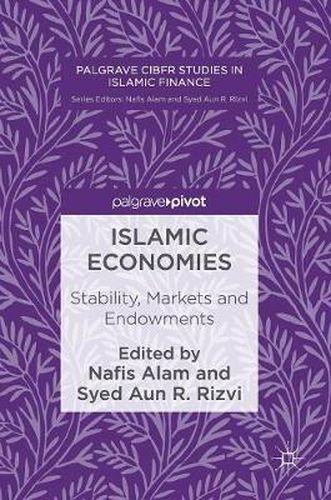Readings Newsletter
Become a Readings Member to make your shopping experience even easier.
Sign in or sign up for free!
You’re not far away from qualifying for FREE standard shipping within Australia
You’ve qualified for FREE standard shipping within Australia
The cart is loading…






This title is printed to order. This book may have been self-published. If so, we cannot guarantee the quality of the content. In the main most books will have gone through the editing process however some may not. We therefore suggest that you be aware of this before ordering this book. If in doubt check either the author or publisher’s details as we are unable to accept any returns unless they are faulty. Please contact us if you have any questions.
This book explores contemporary empirical issues in Islamic economics. It begins by outlining current trends in Islamic economics and before identifying gaps in the empirical research. It then goes on to discuss the role of institutions in economic growth for Islamic countries, and the fiscal aspects of Islamic economics. It explores issues in debt and growth, as well as the instruments of monetary management in Islamic economics. It analyses the trade-off between growth and stability and concludes with discussion of Zakat and Waqf in driving growth.
$9.00 standard shipping within Australia
FREE standard shipping within Australia for orders over $100.00
Express & International shipping calculated at checkout
This title is printed to order. This book may have been self-published. If so, we cannot guarantee the quality of the content. In the main most books will have gone through the editing process however some may not. We therefore suggest that you be aware of this before ordering this book. If in doubt check either the author or publisher’s details as we are unable to accept any returns unless they are faulty. Please contact us if you have any questions.
This book explores contemporary empirical issues in Islamic economics. It begins by outlining current trends in Islamic economics and before identifying gaps in the empirical research. It then goes on to discuss the role of institutions in economic growth for Islamic countries, and the fiscal aspects of Islamic economics. It explores issues in debt and growth, as well as the instruments of monetary management in Islamic economics. It analyses the trade-off between growth and stability and concludes with discussion of Zakat and Waqf in driving growth.